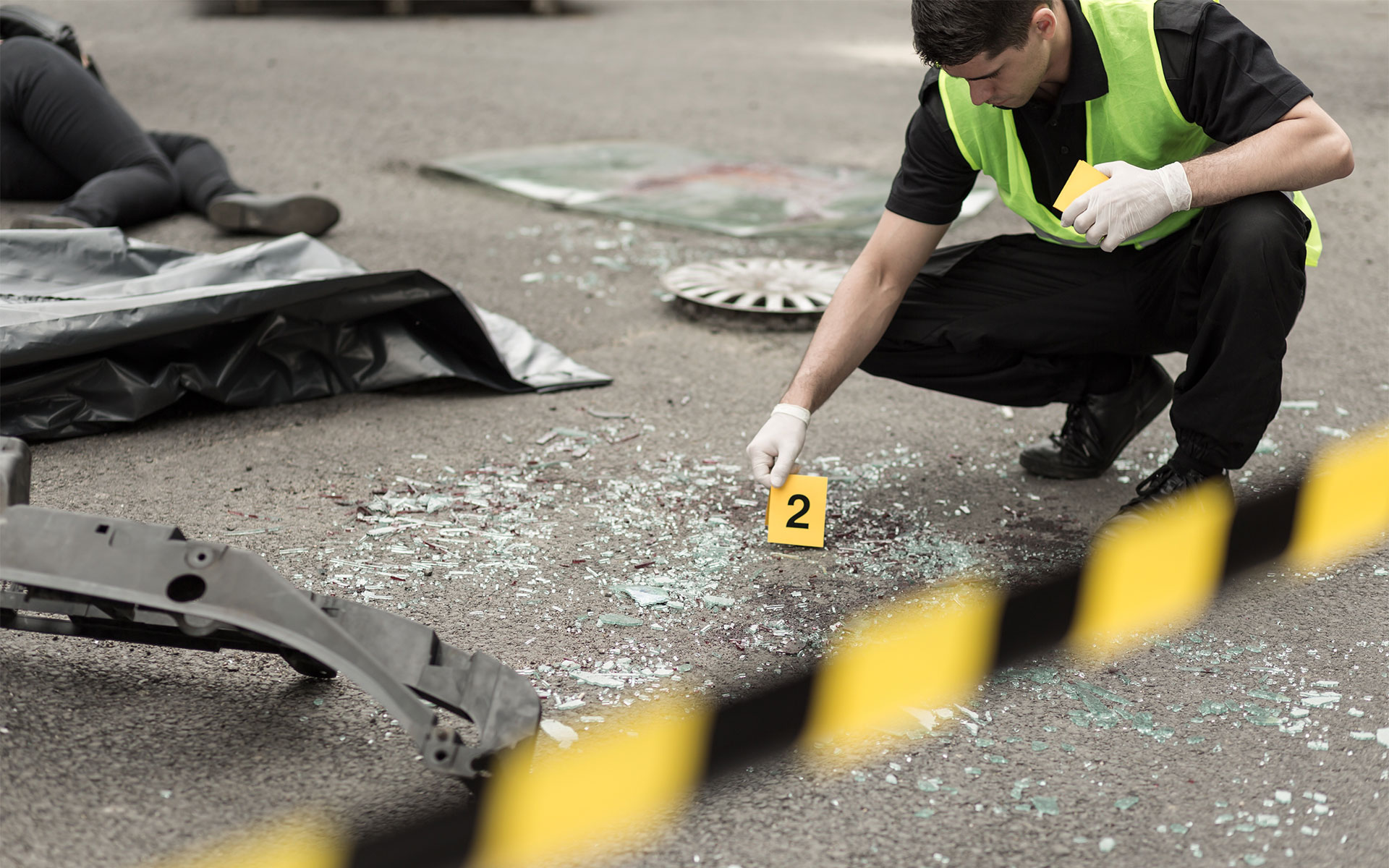
Being charged with a crime can have severe consequences for a person’s life, regardless of innocence. However, there are many types of legal defenses that can help a person avoid conviction if they are proven to be guilty in a court of law.
While many people may be familiar with a number of legal defenses, what will significantly strengthen the defendant’s case is a representation by a seasoned attorney who is familiar with the best defense practices and the delicate nuances of each case, as well as a representation by a lawyer who has years of experience in the criminal defense team.
This blog post clarifies the specificities of the most common potential legal defenses available to defendants in the state of Texas.
Legal Defense Definition
Under Texas law, the prosecution has to be able to prove that a certain crime has occurred in a way they aim to present beyond a reasonable doubt. Hence, the legal definition of criminal defense refers to a carefully constructed and executed argument that seeks to contest the validity and adequacy of the prosecution’s evidence.
In practice, this means that the prosecution has a duty to verify all aspects of a crime a defendant has been charged with in order to legitimize the burden of proof.
Following are the most common legal defenses in Texas.
Types of Defenses in Criminal Law
Innocence
The defense of innocence is introduced in cases where a defendant did not commit the crime. In reality, in order to prove one’s own innocence, the defendant does not have to prove anything but can provide the court with relevant documents, evidence, or testimonies that can strengthen the case. It is the prosecution’s job to establish each element of the crime beyond a reasonable doubt.
Accidents
According to Texas law, should a person engage in an action that results in a crime without an intent to do so, they are liable to the accident defense. This means that if a defendant and their attorney are capable of proving that the crime was accidental, they can be found not guilty. Of course, this will exclude cases in which a person has accidentally caused a crime while, for example, under the influence of substances and the like.
Alibis
The alibi is an affirmative defense, meaning that the defendant has to provide solid proof that they were in another place when the crime has happened instead of being at the crime scene. The alibi necessarily has to be supported by evidence such as a confirmation of another person with whom the defendant was at the time of the crime, phone records, surveillance footage, tickets or receipts that show that the person was elsewhere.
Coerced Confessions

Due to a number of reasons, innocent people sometimes involuntarily confess to a crime they did not commit. One of the most common reasons for this is law enforcement coercion. This happens when an officer pressures a defendant to coerce by misleading them and using different tactics such as sleep, water, or food deprivation, by using physical force, disregarding the person’s right not to speak without an attorney present, to name a few.
Read our blog post “Confessing to a crime you didn’t commit” to learn more about this.
Double Jeopardy
The purpose of double jeopardy defense is to protect defendants from being charged twice for the same offense, as well as those facing multiple sentences for the same crime. Double jeopardy will also disable the prosecution from reopening the case by bringing further evidence.
Constitutional Violations
The constitutional violation is a class of criminal defense that refers to a way in which the law enforcement has collected the evidence. These kinds of police mistakes can lead to a dismissal of the case if proved to be truthful. Some examples of constitutional violations include unlawful search and seizure of the defendant or the defendant’s property such as home, vehicle, or personal items; lack of entry warrant; solicitation of improper confession; or a lack of presentation of Miranda Rights to the defendant at the time of the arrest.
Duress
Duress refers to a defense that is used for cases in which the defendant committed a crime under a threat of violence or force. Put simply, it refers to a situation in which another person coerces the defendant to do something that they otherwise wouldn’t do.
Entrapment
Entrapment refers to situations in which most commonly an undercover law enforcement officer manipulates a person to commit a crime by coercing, threatening, or harassing them. As such, this type of defense is typically used in situations that involve undercover officers related to child pornography, possession or selling of regulated substances, prostitution, or public indecency acts.
False Accusations / Wrongful Arrest
False accusations commonly lead to wrongful arrests. This type of defense is common in cases of domestic violence and is usually motivated by anger, intent to cover one’s own illegal activities, or by a desire for revenge. False accusations can have serious consequences for an innocent person’s life, which is why representation by an experienced criminal defense attorney is important.
Find out more about wrongful convictions in our blog post.
Insanity

Just like alibi, the insanity defense belongs to a group of affirmative defenses, meaning that it demands that the defendant proves beyond a reasonable doubt that they were impacted by a severe mental illness or disorder when they committed the crime. This kind of defense is legitimized in the court of law on the basis of the so-called M’Naghten Rule, one that refers to the fact that due to the mental disorder the defendant was incapable of distinguishing right from wrong or that they were driven by an “irresistible impulse” due to which they were unable to stop themselves.
This is where it gets tricky and the criminal defense attorney’s role is crucial: should a person claim the insanity defense, they first need to admit that they have indeed committed a crime. It will be up to a jury to decide whether they think that the defendant was insane or not, and in case they go against it, the prosecution will win since they have a confession of a crime on the record. It is also important to keep in mind that the insanity defense most commonly results in institutionalization.
Lack of Probable Cause
In order for the police to be able to detain or arrest a person, they need to have probable cause – a sound and reasonable suspicion that a crime has or will happen. Should a defense attorney discern that there is a possibility that their defendant has been stopped or detained without probable cause, they may decide to file a motion to suppress and to discredit potential evidence that has been seized during a search that happened without probable cause.
Mistaken Identity
Mistaken identity or identification happens when an eyewitness mistakes a defendant for another person who has actually committed a crime. Common causes of this are physical resemblance to the perpetrator, intent by a perpetrator to blame someone else in order to avoid sentencing, or a simple correlation that is not based on causation in reality.
Mistake of Fact
Mistake of fact is a type of defense strategy employed in cases in which the defendant was unaware of all or some of the aspects of the crime. For example, a defendant may have unknowingly committed fraud or embezzlement by believing that the legal owners have given them the right to use their property – be it their home, vehicle, or another item.
Necessity
This kind of defense is used to justify that the defendant acted out of necessity, or that they acted the way they did in order to prevent more severe harm or crime from happening. An example of necessity reflects in cases in which a person has stolen a vehicle to take a person that is in urgent need of medical help to a hospital.
Parents Right to Discipline a Child
According to US law, parents claim rights to discipline their own children in a way they find suitable, including corporal punishment, as long as it is within reason. Parents’ right to discipline children is a type of defense that can be employed if the defendant can establish that the disciplinary acts they have engaged in were justified and reasonable in a given situation.
Police Misconduct

Unfortunately, law enforcement is not always abiding by the law and is sometimes guilty of various sorts of misconduct, some of which we have mentioned above. Some of the most common manners in which the police are abusing power include manipulating information in crime scene reports or testimonies, evidence planting, unnecessary and exaggerated use of force, including teasers and pepper sprays.
A defendant who manages to prove that they have been exposed to police misconduct is entitled to file a civil rights claim and various other things depending on the circumstances.
Self-Defense
Self-defense is a type of justification that is commonly used for crimes such as assault and murder, ie. crimes in which the defendant used violence to defend themselves against the violent actions of the victim, or the threat thereof. In order to be legitimized, the force used by the victim and the defendant needs to be reasonable and proportional.
Defense of Property
In the case of defense of property, the amount of force that has been used to safeguard a house, land, or item from destruction has to be appropriate and proportionate, similarly to the case of self-defense. However, unlike in the case of self-defense, the force that has been used cannot be fatal.
Unconsciousness
Unconsciousness is a type of defense that is used to safeguard persons who have committed a crime unknowingly. This can sometimes happen if a person is delirious, has an epileptic seizure, is asleep, or is involuntarily intoxicated. Should a person, for example, cause a traffic accident while voluntarily intoxicated with medication they are on such as Ambien, they will be held liable.
Voluntary Intoxication
Keeping in mind that the prosecution has to prove beyond a reasonable doubt that the defendant had clear intentions to commit a crime, voluntary intoxication comes into play as another potential legal defense. However, intentional use of drugs and alcohol when committing a crime does not make for a safe defense, making this a tricky kind of defense.
Involuntary Intoxication
Involuntary intoxication belongs to a category of so-called ‘lack of intent’ defenses and refers to a situation in which the defendant was incapable of making clear judgments or was unaware of their actions due to intoxication by a substance. This can happen when a person’s drink or food is laced with a regulated or unregulated substance such as narcotics.
Abandonment
Abandonment refers to a situation in which even though a defendant originally planned to commit or participate in a crime they changed their mind and have withdrawn from the situation. In the case of this defense, the defendant has to prove that they have abandoned the plan or its execution prior to its execution, that they have notified the police about the potential crime, and that their actions did not contribute to the successful execution of the crime.
Read more about accomplice liability in our blog post.
Statute of Limitations
Statute of limitation belongs to a group of procedural defenses, similar to constitutional violations. This kind of defense is used for crimes that have a specific time frame during which the prosecution can bring them up. If the timeframe is over, the statute of limitations can prevent the prosecution from doing so.
Finally, being represented by an experienced lawyer makes all the difference. Contact GHC Law Firm today if you require any criminal defense assistance at (512) 614-4412.


